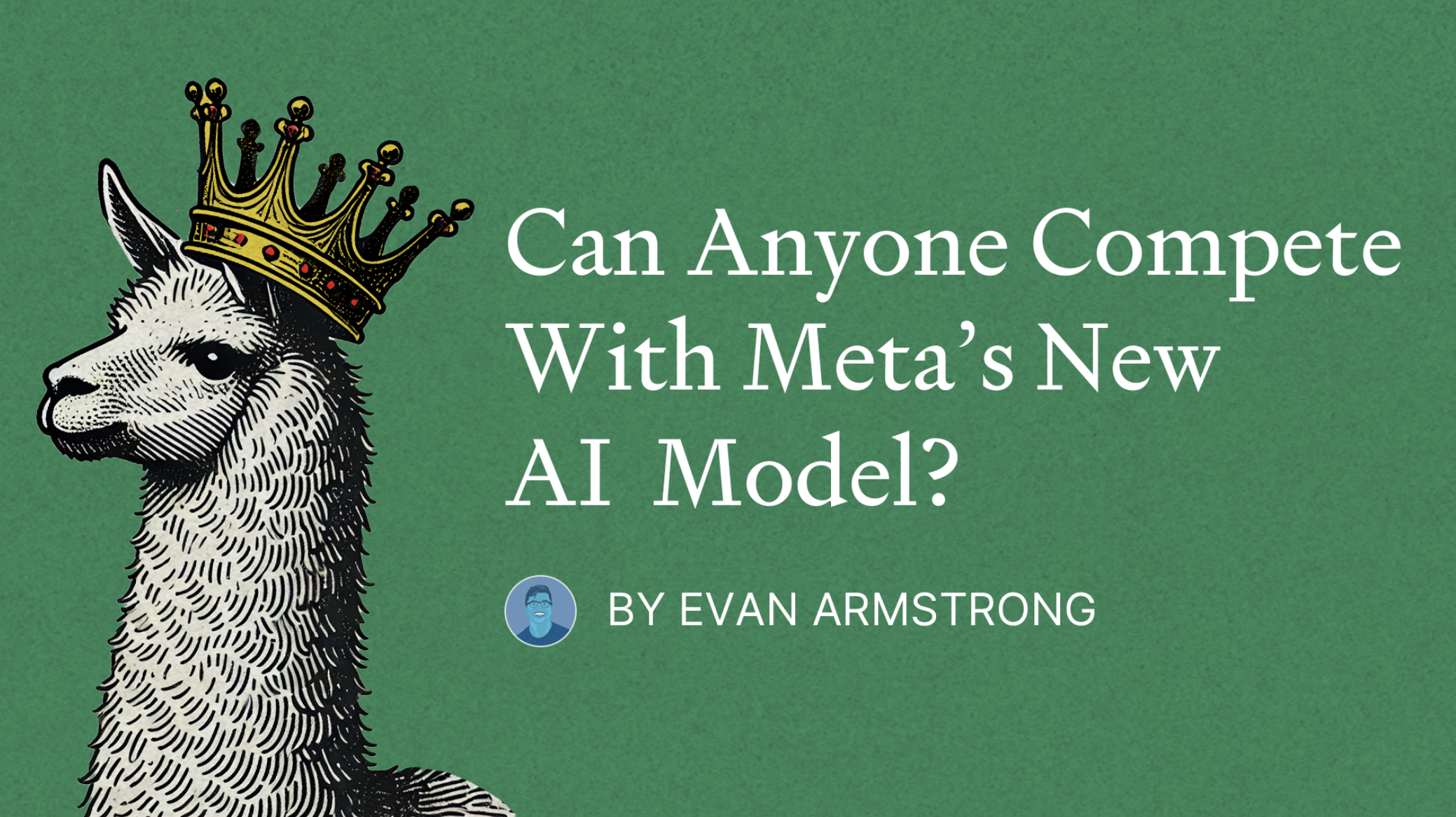Can Anyone Compete With Meta’s New AI Model?

🌈 Abstract
The article discusses the implications of Meta's release of the open-source Llama 3.1 large language model, which is competitive with offerings from OpenAI, Google, and Anthropic. It explores the business strategies of open-source versus closed-source AI model providers, the potential impact on the AI ecosystem, and the author's concerns about the current state of AI technology and investment.
🙋 Q&A
[01] Llama 3.1 Release
1. What are the key points about the Llama 3.1 release?
- Llama 3.1 is a highly capable open-source large language model released by Meta, sometimes outperforming offerings from OpenAI, Google, and Anthropic
- The model's weights are open-source, but Meta is betting that the real value comes from the surrounding ecosystem of tools, optimizations, and integrations
- This contrasts with the business models of OpenAI and Anthropic, which sell access to their language models through APIs and consumer applications rather than the raw weights
2. How does Meta's strategy with Llama 3.1 differ from closed-source AI providers?
- Meta is aiming to enable a "full ecosystem" of tools and integrations to develop around Llama, rather than keeping it as a closed-door service
- This is in contrast to OpenAI and Anthropic, which sell access to their language models and associated features rather than the raw weights
3. What are the potential benefits and drawbacks of Meta's open-source approach with Llama 3.1?
- Benefits: Enables a thriving ecosystem, avoids lock-in to a closed ecosystem, and potentially leads to more innovation and advancement in AI technology
- Drawbacks: Reliance on Meta's continued willingness to fund open-source AI development, uncertainty around whether the ecosystem can outperform components integrated by closed-source providers
[02] Implications for the AI Ecosystem
1. How does the author view the current state of AI technology and investment?
- The author is concerned that the current generation of language models, including Llama 3.1, are not yet capable enough to justify the extraordinary levels of investment in AI
- The author believes we may need a new generation of models with dramatically improved capabilities to deliver on the grand promises of language models
2. What are the author's concerns about the open-source AI movement's reliance on Meta?
- The author is concerned that the open-source AI community is too reliant on Meta's goodwill and funding, as frontier AI models are enormously expensive to develop
- If Meta's willingness to sustain long-term losses on open-source AI wanes, it could undermine the entire open-source AI movement
3. How does the author view the potential impact of Llama 3.1 on the AI ecosystem?
- The author believes Llama 3.1 is mostly good news for Meta's ecosystem partners, as it is a compelling offering that may lead some companies to swap out their reliance on closed-source providers like OpenAI